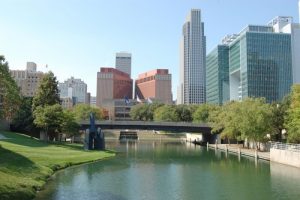
U.S. Rep. Don Bacon (R-NE) recently introduced a bipartisan bill to help local governments utilize funding already allocated under the federal government’s three previously approved bipartisan emergency relief funding packages.
“If we don’t address these shortfalls now, our local leaders will be standing on the brink of having to make decisions that would result in laying off police, firefighters and other essential services,” Rep. Bacon said. “We cannot allow that to happen.”
The congressman on May 1 sponsored the Flexibility for Localities and Eligibility Expansion Act of 2020, H.R. 6652, with 10 original cosponsors, including U.S. Reps. Michael McCaul (R-TX) and Salud Carbajal (D-CA).
If enacted, the bill would amend current language to allow additional flexibility for state and local governments to access previously approved federal relief funds to offset lost revenue due to the COVID-19 pandemic. The current guidance prohibits the use of COVID-19 relief funds to offset lost revenues, according to a bill summary provided by Rep. Bacon’s office.
“The largest city in my district, the City of Omaha, was scheduled to host the NCAA Men’s College World Series, U.S. Olympic Swim Trials, Berkshire Hathaway Stockholders Meeting, and other events that attract thousands of people into restaurants and bars, generating critical revenue,” explained Rep. Bacon. “Without these events, Omaha is estimated to lose nearly $35 million this year in tax revenue, negatively impacting the city’s operations, including first responder departments.”
Rep. McCaul noted that as funding has been distributed to localities under the most-recent Coronavirus Aid, Relief, and Economic Security (CARES) Act, many of them are realizing that the use of these funds are too strict and do not help cover budget gaps.
“Our state and local governments have taken a massive economic blow outside of the immediate expenses they have faced from the response of the virus,” said Rep. McCaul. “This legislation will give a lifeline for many of our local communities who depended on major events and consumer activity to bring in revenue.”



